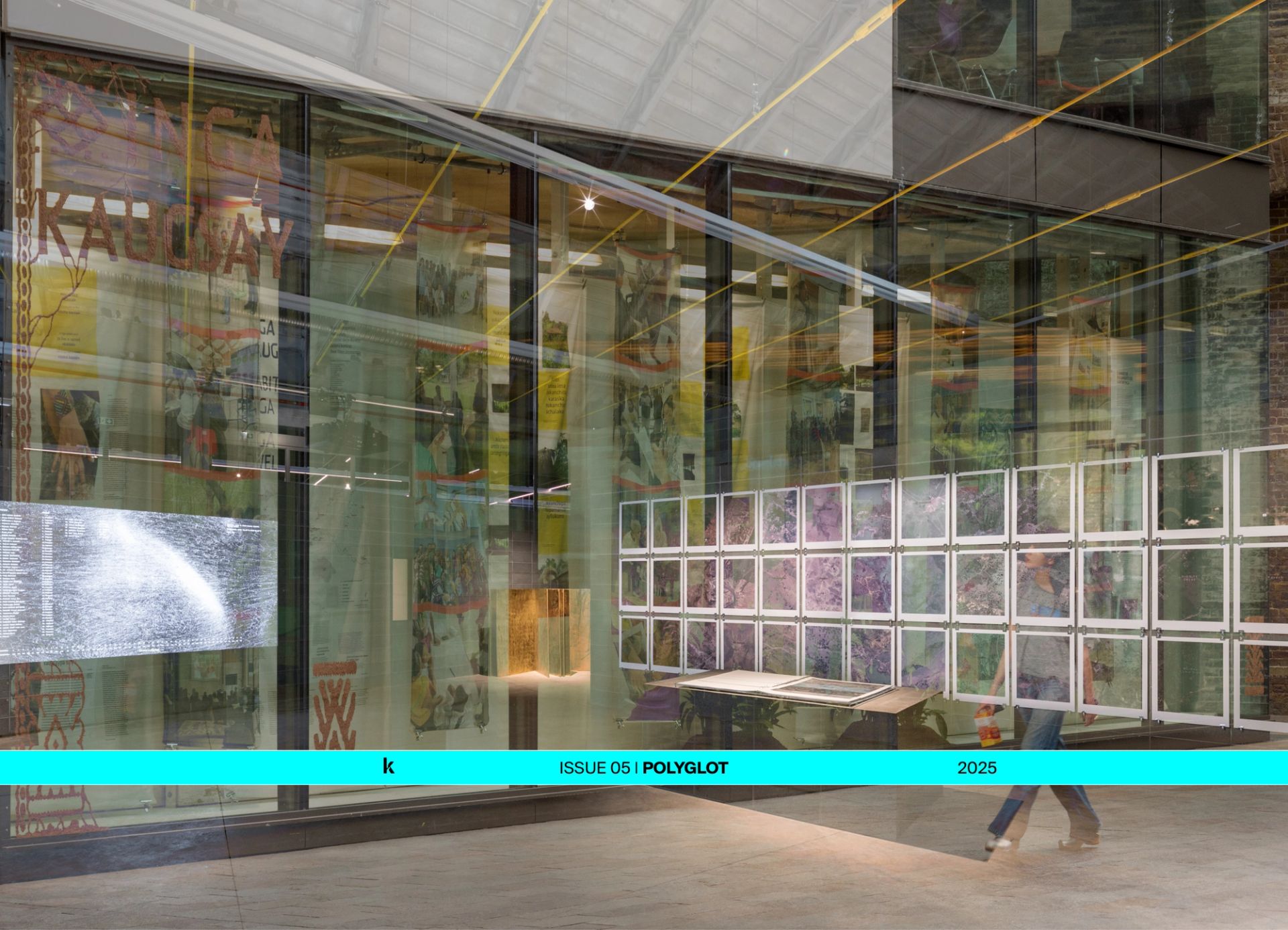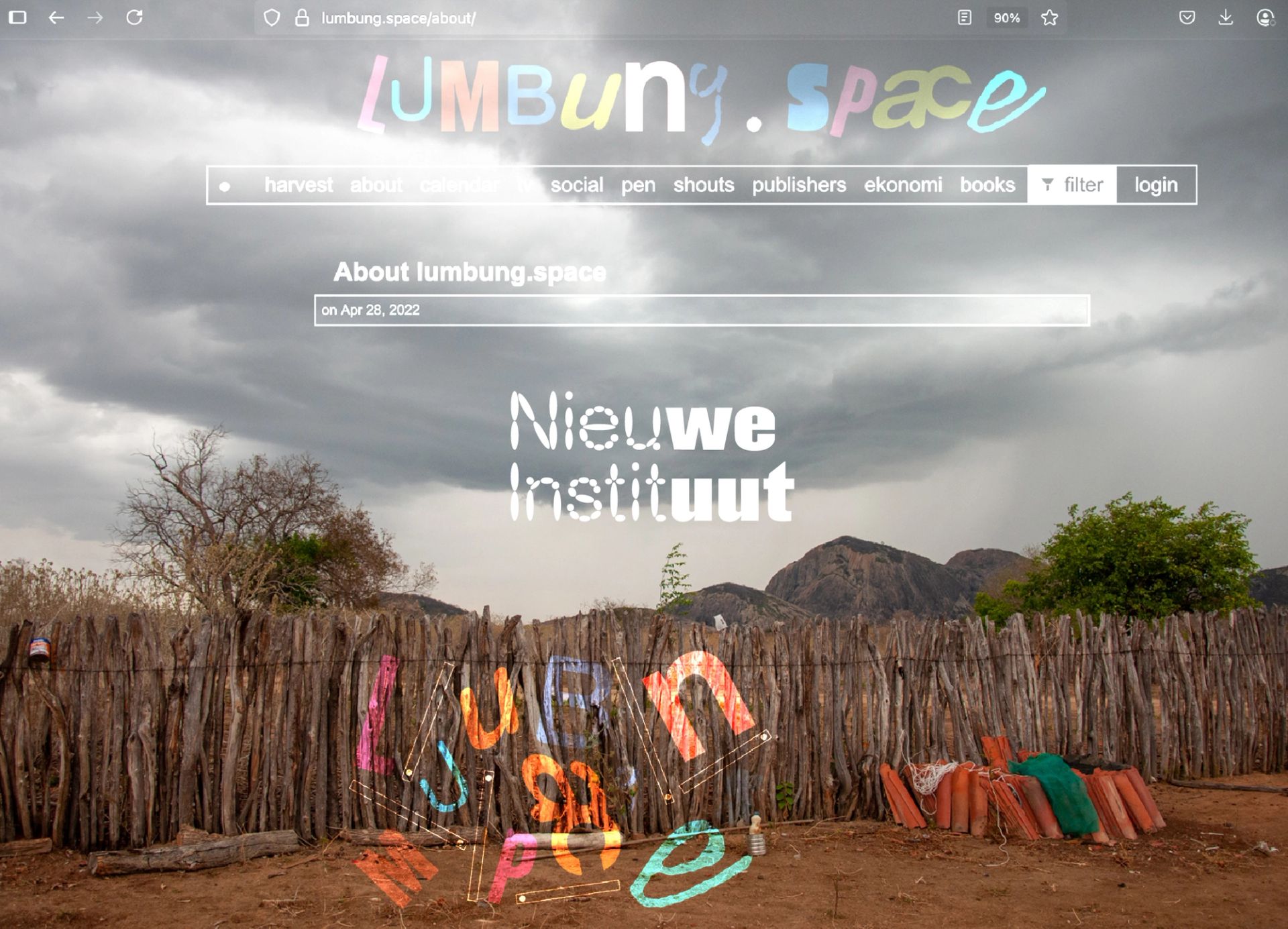The conference Planetary Design – Reclaiming Futures took place this year in Berlin, in late October, bringing together critical voices and debate on the role of design in making, unmaking and remaking worlds. This audio series gathers these provocative polemics and presentations for posterity, allowing for deep dives and due reflection.
Starting from the intersection of design, infrastructure, and the planetary environment, these conversations — between architects, cultural scientists, geographers, philosophers, scholars of emerging technologies and artists — act as a generative platform for a discussion around design’s role in producing our past, present, and potential for differently designed futures.
The podcast "Planetary Design – Reclaiming Futures" is a project produced by KoozArch in partnership with Governing through Design, supported by a Sinergia Research Grant by the Swiss National Science Foundation. You can listen to episodes on Spotify and Apple Podcasts.
EP. 01 | Introduction to Planetary Design. Reclaiming Futures
with the Governing through Design team
What possibilities unfold — political, social, cultural — if we propose design as a planetary endeavour, rather than as a problem solving activity? This driving question around the notion of planetary design, frames a discussion between KoozArch founder Federica Zambeletti with Kenny Cupers, Orit Halpern, Claudia Mareis and Laura Nkula-Wenz, from the research group Governing Through Design.
EP. 02 | Framing Planetary Design, Part I: Scales
with Kenny Cupers
Design is often called upon to solve problems that have their roots in political and ecological crises. Drawing upon his research on the history of Empire, academic and researcher Kenny Cupers reveals the origins of planetary thinking as a design project, always intended to shape the very nature of humanity.
EP. 03 | Framing Planetary Design, Part II: Values
with Claudia Mareis
Postwar debates heralded the ingenuity of design, even as practitioners like Buckminster Fuller projected the “whole earth” as a testing ground. Examining these techno-scientific, universalist ambitions, designer and cultural scientist Claudia Mareis questions the modernist and imperialist agendas — separating industry from craft — embedded therein.
EP 04 | Framing Planetary Design, Part III: Intelligence
with Orit Halpern
The irrepressible rise of AI sees us enter a feedback loop between artificial and human cognition, as discussed here by author and scholar of digital cultures Orit Halpern. What does this mean for the automation of environmental intelligence? If AI is the answer, what’s the question?

Envisioning the space of networked decision making in financial markets. Asymptote Architecture (Hani Rashid, Lise Anne Couture), “3DTF Virtual NYSE,” 1999. Asymptote Architecture New York Stock Exchange project records, Press kit for Three Dimensional Trading Floor, AP184.S1.061. Gift of Asymptote, Canadian Centre for Architecture © Asymptote.
EP 05 | Design and Democracy? Political Collectivities and Participation
with Anke Gruendel
What is the relationship between design and democracy — and has it gone too far? The panacea of participation is widely prescribed, yet as researcher and political scholar Anke Gruendel suggests, questions remain around forms of knowledge and perspectives that are extracted or excluded.
EP 06 | Ecosocialist Planning: Between Utopia and Realism
with David Frank
Depending on the market economy to deliver decarbonisation seems like a long and potentially futile game. Rather, asks environmental philosopher David Frank, what are the utopian and ecosocialist imaginaries and alternatives that we can draw upon in the real world?
EP 07 | Indigenous Infrastructures of Worldmaking
with Rural Futurisms / Lesego Bantsheng and Awande Buthelezi
Almost universally, conversations around imminent environmental, political and social urgencies tend to focus on urban agglomerations rather than on rural communities. Lesego Bantsheng and Awande Bulthezi present the concept of cosmotechnical intelligence, bridging indigenous, traditional and contemporary understandings of materiality and value.
EP 08 | Reparative Design – Inherited Pasts, Restituted Futures
with Dele Adeyemo
If urbanisation is ineluctably spreading across the planet, exactly whose model informs the pattern? Whose plans inform the development of underdevelopment, and spatial imaginary of the mega city? Architect and artist Dele Adeyemo uses film to explore and interrogate issues of racial capitalism and the contemporary lifeworlds that exist in their midst.
Keynotes
“Casual Planetarities: Force-Fields and Movement as Terms of Engagement” by Andrea Ballestero.
Replacing questions of scale with concerns about distance, Ballestero’s talk asks how people make sense of their planetary condition by thinking geologically. She explores the role that movement — movement of an aquifer and movement as analytic — plays as people navigate the force-fields of their daily lives an already changed planet. Bringing together the work of geologists, local residents, and artists, Ballestero proposes choreographic thinking as a way of changing the terms of engagement in the midst of an increasingly authoritarian and populist planetary climate.
Watch here.
“The Non-Human Standpoint: Living Environments after AI” by Nortje Marres
The world is living with a tiring paradox today: the perspective of the non-human is validated as never before after AI has been widely embraced as the new ‘engine of change’. But at the same time, anti-environmental attitudes are ascending and seem to be only amplified, consolidated, and fed by the embrace of machine intelligence. How to break this coupling of two contradictory validations through ‘AI’, of the non-human perspective with withdrawal from the world?
Watch here.
Credits
The conference was organized by Governing Through Design project team (Claudia Mareis, Kenny Cupers, Orit Halpern, Laura Nkula-Wenz, Özgün Eylül İşcen, Nadia Christidi, Sudipto Basu, Anke Gründel, Tania Messell), in cooperation with the ICI Berlin. The conference marks the culmination of Governing Through Design, a collaborative research project supported by a Sinergia Grant of the Swiss National Science Foundation.
Project partners: Humboldt Universität Berlin zu Berlin, Technische Universität Dresden, Universität Basel, Concordia University, Fachhochschule Nordwestschweiz (FHNW)
Dele Adeyemo's work was commissioned by the Against Catastrophe project. The commission will feature in the second of three installments of the online exhibition Reclaiming Futures. Reclaiming Futures critically examines how design, architecture, and technology are imbricated in producing catastrophic eco-social realities but also present tools with which to imagine and build more equitable, democratic, and sustainable worlds. The second exhibition installment will focus on planetary urbanisms and will be available at https://againstcatastrophe.net in January 2025. The Against Catastrophe project is part of Governing Through Design, a collaborative research initiative supported by a Sinergia Grant of the Swiss National Science Foundation.
Bios
Governing through Design is a collaborative research project that investigates how design impacts society. It uses history and ethnography to develop new narratives of how the practices and epistemologies of design reconceive global politics and everyday lifeworlds, and invest in pedagogies that seek to intervene in contemporary practices of design. Governing through Design is an interdisciplinary collective of researchers based at the FHNW Academy of Art and Design, the University of Basel, and Concordia University Montréal, with backgrounds in design history, urban studies, media studies, anthropology, sociology, political science, and science & technology studies.
Dele Adeyemo is a Scottish / Nigerian artist, architect, and critical urban theorist based in London and Lagos. Dele’s research and creative practice address the architectures of racial capitalism and the contemporary lifeworlds that exist in their midst. Paying tribute to the radical acts of everyday Black life in Africa and the diaspora through drawing, film, sculpture and installation design, Dele’s projects trace the contours of Black socialities from their embodied cultures of movement to their circulation to mobilise an immanent—Black radical spatial imaginary.
Kenny Cupers is co-founder of the Critical Urbanisms program at the University of Basel. He is committed to the development of the urban humanities through collaborative pedagogy and public-facing research at the intersection of architectural history, urban studies, and critical geography. Cupers leads the SNF-funded project, How Infrastructure Shaped Territory in Africa, and co-directs (with Orit Halpern and Claudia Mareis) the Sinergia project Governing through Design: An Interdisciplinary Phenomenon. Cupers received his Ph.D. in architectural and urban history from Harvard University in 2010.
David Frank is Mellon Postdoctoral Fellow and has been teaching courses on philosophy of biology and environmental philosophy while writing on controversies about the concept of invasive species in environmental sciences, the ethics and economics of the Green New Deal, and the ethics of environmental health research. Before joining Brown’s department of philosophy and the Cogut Institute, he held postdoctoral positions at New York University, the University of North Carolina, and the University of Tennessee.
Anke Gruendel is a research associate at the Institute for Cultural History and Theory at the Humboldt-Universität zu Berlin, a member of the international research collective Governing through Design, and a member of the Cluster of Excellence Matters of Activity. Image Space Material. She holds a PhD in Politics from the New School for Social Research. She investigates the participatory dimensions of design as a material enactment of democratic norms in which lived experience and situated knowledge is part of a new political epistemology.
Orit Halpern is Full Professor and Chair of Digital Cultures at Technische Universität Dresden. Her work bridges the histories of science, computing, and cybernetics with design. She completed her Ph.D. at Harvard. She has held numerous visiting scholar positions including at the Max Planck Institute for the History of Science in Berlin, IKKM Weimar, and at Duke University. She has also published widely in many venues including Critical Inquiry, Grey Room, and Journal of Visual Culture, and E-Flux.
Claudia Mareis is a designer and cultural scientist with specialization in design research. She is a full professor for design studies at the Academy of Art and Design FHNW Basel, where she is director of the Institute of Experimental Design and Media Cultures and founder of the Critical Media Lab Basel. Her research interests include experimental design and media cultures, history and theory of design, creativity discourses. She completed her Ph.D. studies at the Art University Linz with distinction in 2010.
Laura Nkula-Wenz is a lecturer and student affairs coordinator for the MA in Critical Urbanisms, University of Basel, as well as a Postdoctoral Research Fellow on the SNSF-funded ‘Governing Through Design’ project, where she co-leads the South Designs initiative together with Prof. Kenny Cupers. She is a human geographer by training with a passion for postcolonial urban theory, African urbanism, new pedagogies of the city and public culture.
Rural Futurisms is a collective of writers, designers, cultural practitioners, historians, and organisers who are interested in decolonising the archive through design and Southerly perspectives on climate change and climate justice. The collective is currently pursuing a community based project as part of South Designs which is an enquiry on materials of making in Makgobistad, South Africa, and their dialogue with the cosmology of its dwellers.





